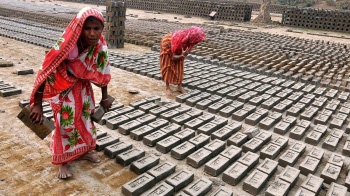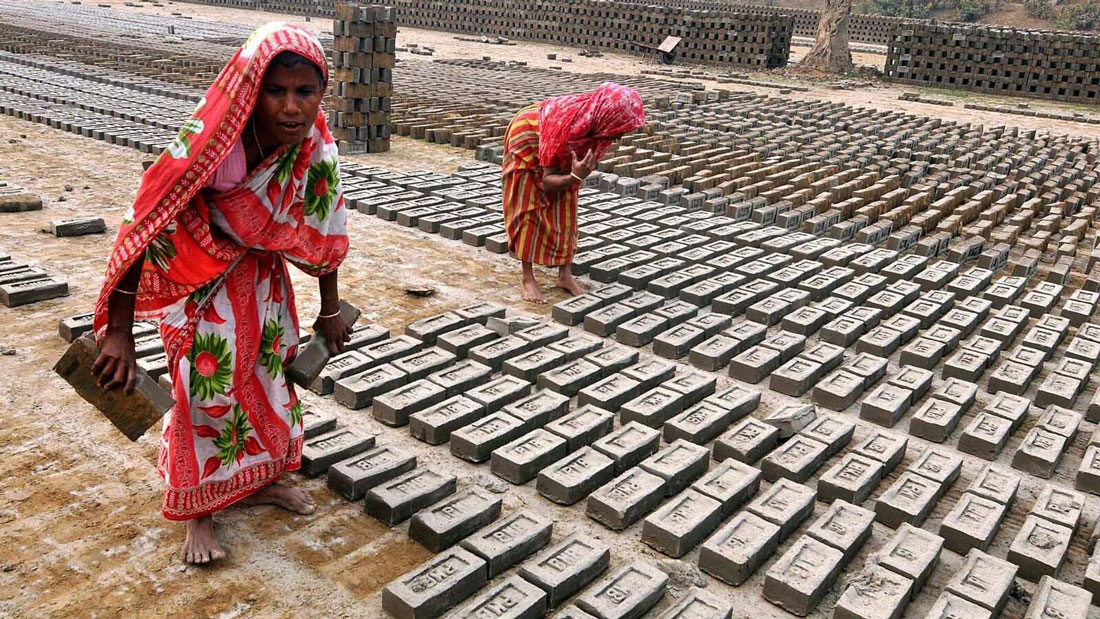
.jpg) Jose Vattakuzhy
Jose Vattakuzhy

The 2022-23 budget is called a digital budget. It is because of two reasons: one is the decorum of presentation of the same. The Finance Minister presented the budget reading out from a tablet and it was circulated digitally in Parliament; secondly, there were many proclamations of digitalization in many areas of economic activities.
The Government has announced initiatives on digital rupee, Kisan drones for crop assessment, digitization of land records, digital systems for skilling, upskilling and livelihood of the people, digital teachers with high-quality e-content through separate channels according to the classes of the students and declaration of a digital university.
However, it misses out on workers’ perspective on planning. The extent of digital skill utilization among the workforce or employees varies from country to country. In India, 12 percent of the country's workforce apply digital skills in their jobs. The study shows this number stands around 58.8 million. It would increase hugely in the proposed digitalization era.
The digital sector worker here means the person who works with the help of automated teams or highly technological facilities. They would be trained to carry out economic activities of an establishment or any sector digitally. Those who do ‘work from home’ (WFH), IT sector workers, and ‘gig’ workers come under this category.
The term ‘gig’ is a slang for a job that lasts for a specified period; it is typically used by artists. That means non-standard or gig work comprises income-earning activities outside the customary domain of work wherein durable employer-employee relationships exist.
The ‘gig’ employees could include freelancers, independent contractors, project-based workers, and temporary or part-time hires. Due to the absence of mandatory labour regulations, they mostly belong to informal sectors like drivers, lifeline delivery men, taskers, massage therapists, crafts persons, virtual assistants, tutors, survey-takers, child caretakers, housekeepers, maids, cooks, graphic designers, cleaners, consultants, data collectors, and so on. Amazon, Flipkart, Uber, Ola, Zomato, Swiggy, Urban Company, Big Basket,
Grofers, and many others in retail, technology, food and beverages, home services are aggregators of those ‘gig’ workers. As per the government’s policy, they are the business partners than employers for ‘gig’ workers in India.
Work from home (WFH) is a new trend, especially in the Covid 19 era. The Covid pandemic, social distancing and lockdowns forced employers to adopt the work-from-home policy. As per reports, the lockdown made more than 4 million IT workers to be shifted into the mode of work from home. In addition to the government, private sector employers have also been advocating the employees to work from home, this situation has continued in the second and third waves of the delta and omicron virus periods.
Besides IT and net-based service sectors’ workers, there are other options for working from home. In those categories, one would do what he/she wishes and would get income without going out of the house. Self-entrepreneurship is growing at a steady speed today.
From online teachers, virtual assistants to content writers, translators to Web developers, consultants of companies, accountants, travel agents, reporters, photographers, telemedicine practitioners, psychotherapists, designers, social media managers, data entry operators, etc., are finding a lot many working opportunities at online platforms.
The Upwork.com, Zirtual.com, Freelancer.com, Media Bistro, implyHired.com, Monster.com, Indeed.com, Guru.com, iFreelance.com, Imagesbazaar.com, Shutterstock.com, Gettyimages.com, Stock.Adobe.com and career sites are some of which would facilitate various types of work from home online. Eduwizards.com, Tutorvista.com, Chegg.com, Myschoolpage.com, and Amazetutors.com would help one to teach students based in the UK, the US, Canada, and Australia. Udemy.com, Lynda.com, and Edx.org are available to learn the basics of how to enter online work.
However, the tasks of WFH are also high. Not enough infrastructures like 24x7 internet connectivity, undisturbed power supply, sufficient office space, clear cut government policies, definite labour law with definition on terms of workplace and workers for easy employee’s rights protection, and the cyber security protocols are some of the major challenges of working from home.
In the absence of a national WFH policy in the country, the employees who are working from home would end up with discrimination, lack of productivity, unhealthy relationship between employer and employee, regular overtime working hours, non-reimbursements of office expense, and lack of occupational safety.
Remote working, virtual meetings, sharing an office, contingent workers, cost-saving measures, switched and mixed occupations are new terms in the labour market and workplace. But a big question is whether the nation including employers, employees, human resources team, and trade unions are prepared for it. No, it is unprepared for work from home.
Recent studies have shown that 60 per cent of employees, who are working from home, are suffering from social isolation, difficulties in adjusting private and professional lives, fears of hire- and-fire and lack of promotions.
In this backdrop, the digital budget does not take into consideration the challenges of digitalization and automation in informal and formal sectors. In the budget, there is no mention of workers who want upgradation of skills as digitalized workers; there is no provision of digital-enabled infrastructures and a national policy like in Philippines, Australia, and England which have a legal structure governing Work From Home.
(The writer is the founder Director of Workers India Federation (WIF). Email: josevattakuzhy2017@gmail.com)